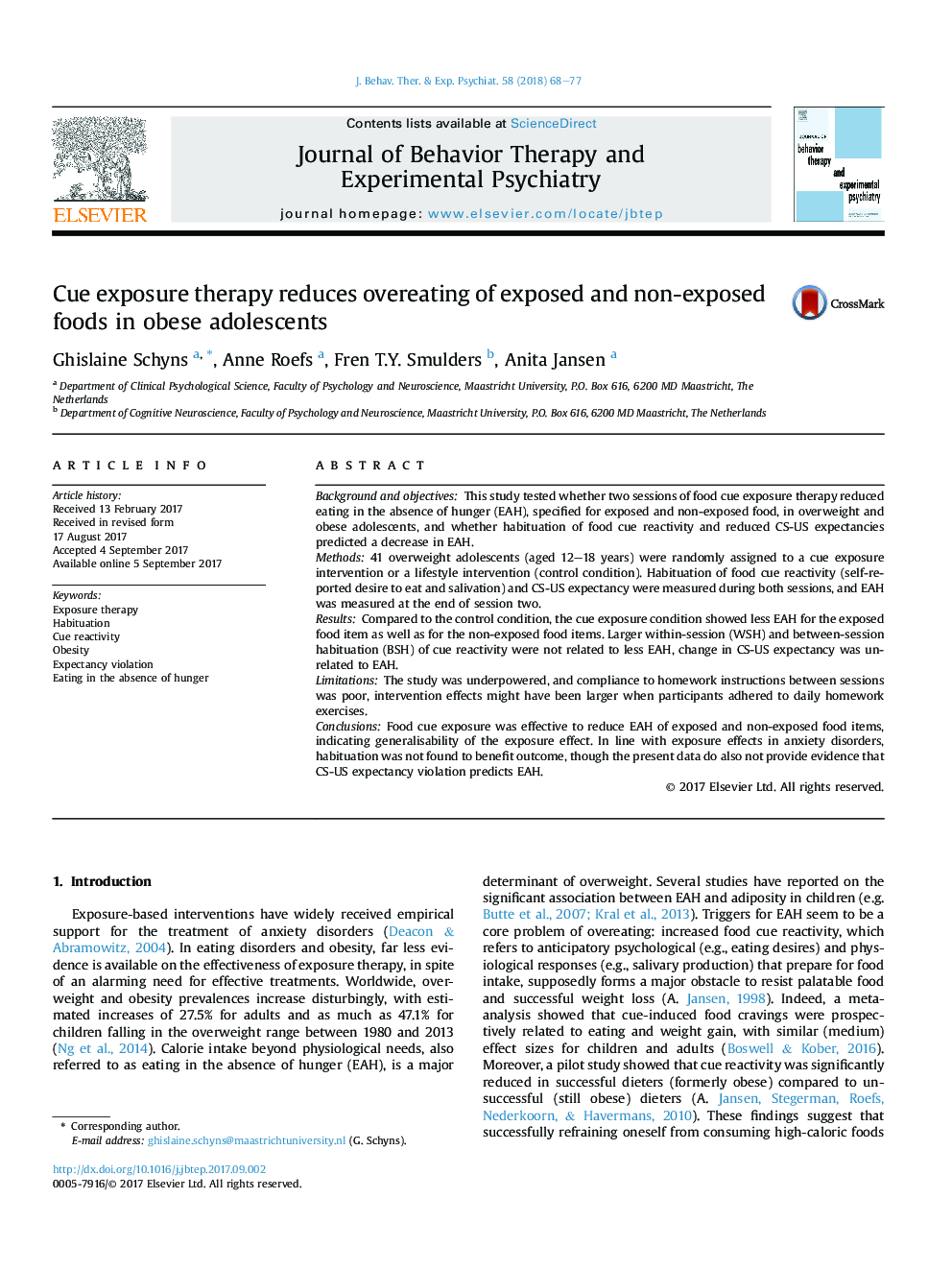| کد مقاله | کد نشریه | سال انتشار | مقاله انگلیسی | نسخه تمام متن |
|---|---|---|---|---|
| 5038969 | 1473058 | 2018 | 10 صفحه PDF | دانلود رایگان |
- Two food cue exposure vs. control sessions were compared in obese adolescents.
- Cue exposure led to less eating in the absence of hunger (EAH) of exposed food.
- Less EAH was also found for non-exposed food items (generalisation).
- Habituation of cue reactivity was not related to less EAH.
- CS-US expectancy violation was unrelated to EAH.
Background and objectivesThis study tested whether two sessions of food cue exposure therapy reduced eating in the absence of hunger (EAH), specified for exposed and non-exposed food, in overweight and obese adolescents, and whether habituation of food cue reactivity and reduced CS-US expectancies predicted a decrease in EAH.Methods41 overweight adolescents (aged 12-18 years) were randomly assigned to a cue exposure intervention or a lifestyle intervention (control condition). Habituation of food cue reactivity (self-reported desire to eat and salivation) and CS-US expectancy were measured during both sessions, and EAH was measured at the end of session two.ResultsCompared to the control condition, the cue exposure condition showed less EAH for the exposed food item as well as for the non-exposed food items. Larger within-session (WSH) and between-session habituation (BSH) of cue reactivity were not related to less EAH, change in CS-US expectancy was unrelated to EAH.LimitationsThe study was underpowered, and compliance to homework instructions between sessions was poor, intervention effects might have been larger when participants adhered to daily homework exercises.ConclusionsFood cue exposure was effective to reduce EAH of exposed and non-exposed food items, indicating generalisability of the exposure effect. In line with exposure effects in anxiety disorders, habituation was not found to benefit outcome, though the present data do also not provide evidence that CS-US expectancy violation predicts EAH.
Journal: Journal of Behavior Therapy and Experimental Psychiatry - Volume 58, March 2018, Pages 68-77
